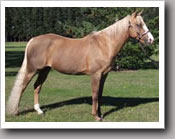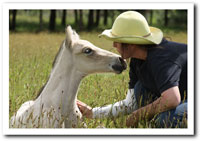Welcome to Calm Healthy Horses
| The purpose of this website is to help solve the frustrating, expensive, not to mention painful for the horse, problems that plague so many horse owners world-wide. Problems which seriously impact your safety, enjoyment, sanity, stress levels and your wallet!
Don’t waste time, energy, money and precious horses battling ‘issues’ that simply disappear when you get the diet right. Step one is to Download and print off the HEALTH CHECKLIST and the CURRENT DIET REVIEW. |
'Getting on a 'Grass
‘You cannot judge your horse’s temperament until you get the diet right’. Jenny Paterson |
Is your horse Grass Affected?
DOWNLOAD OUR FORM & TICK THE BOXES THAT APPLY.
Some people don't even realise their horses
are Grass Affected until it is too late and either they have a nasty
accident or the horse becomes unrideable due to Head-Flicking or
Laminitis.
The thing is that in most cases the symptoms occur
long before the horses get to this stage - we are helping you to
recognise the first signs and how to correct the horses diet immediately
you notice any changes in the horse.
In the mean time, visit our extremely informative website, which is
being constantly updated with the latest research. We too continue on
this journey of learning.
Despite their owners spending vast amounts of money on professional advice, thousands and thousands of horses and ponies all over the planet succumb to a wide array of serious health and behaviour problems every year.
Thousands are put down, turned out, sold for the wrong reasons, don’t reach their full performance potential or are retired far too early.
Thousands become metabolic, get laminitis, are diagnosed with ‘sacroiliac’ problems, become head-flickers/shakers, get mysterious bouts of colic, allergies and skin conditions or mud-fever, buck or spook people off, are forever needing therapies and treatments for ‘muscle-soreness’ or have endless trouble with saddle-fitting.
Ever more horses become over-reactive and therefore dangerous. The combination of an over-reactive horse with a person who does not ‘read’ these signs is a recipe for a serious accident.
The emotional toll on their owners is significant. If your horse isn’t right it ruins your whole day. The economic toll can strain relationships because the non-horsey half doesn’t understand.
Desperate owners spend significant amounts of money on every treatment known to mankind. They spend it on everything except the ‘one thing’ that will make the most difference: their grass and its proper management.
News
If you have a horse who is doing well on CalmHealthyHorses Products we'd like to hear from you
:-)
Contact Us

As we are becoming increasingly inundated with requests for help please first fill out the ‘Health Check List’ – read the ‘Current Diet Review’ and also ‘When Not To Ride…’
If you still feel you need extra advice, to save going back and forth, please include the following information in your email or message:
*Where you are located?
*What sort of grass the horse is on eg: Dairy/oxalate?
*Has the pasture been fertilised and if so what with and when?
*Is the grass short and green?
* Is there any clover in the grass?
* Is the property your own or is it rented grazing?
*How big is your horse – weight?
* What have you been feeding to date in the way of…
• Hay
• Hard Feed
• Supplements
• Salt (ie salt lick or in feed?)
*What are the specific issues with your horse?
To make it easier for us to read, please separate paragraphs – it is really hard to read one long continuous piece of text
snail-mail us
Box 685
Rangiora
North Canterbury
Physical Address
76 Eyredale Rd
RD6
Rangiora 7476
North Canterbury
New Zealand
phone
03 312 5567
fax
03 312 5568
email
info@calmhealthyhorses.com
Links
- The Zephyr Files An hilarious blog about the life of Lord LubbaDuck (Zephyr) If you love horses, great horse photography and a giggle, visit The Zephyr Files.
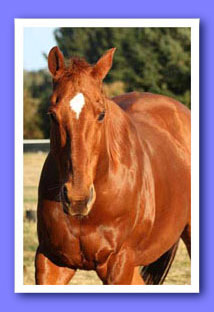
Persil Beaucoup at 29 years
THE FACEBOOK SERIES ARCHIVE
11. Looking after Elderly Horses
15. The stuff you need to know about Rye Grass
About Us
We specialise in 'Grass Affected' Horses.
That means we know this syndrome inside out, in fact it was Jenny who
first recognised and coined the phrase 'Grass Affected' over ten years
ago.
So how did this come about?
For fifteen years, Jenny was a Horsemanship instructor teaching all over NZ.
In those days many people arrived at lessons with all manner of problem horses.
She often had many students return again and again and the same
problems kept rearing their head, despite the fact that they seemed to
have been sorted in the lesson.
Problems such as running off, being
extra spooky, head-shy, aggressive, girthy, tight behind so unable to
canter properly - swapping leads, 'bunny-hopping' with the back legs
together. These are but a few examples from a very long list.
It
became clear that it was nothing that the students themselves were doing
wrong, and many of the students had also spent big money on excellent
professional help encompassing every treatment known to mankind but
still without satisfactory outcomes.
Jenny started to notice
her own horses would have problems when they grazed certain types of
grass. At first, she thought it was a purely mycotoxin problem but
realised after a few more light bulb moments that there were other more
important aspects of the pasture grass causing these issues besides
toxins.
She took on some 'seriously affected' horses and
deliberately did nothing else but change their diet. Within a month or
six weeks they would be completely back to normal without having done
any 'work' on them whatsoever.
It was then she started to do
serious study on the physiology of not only the horse but of the plants
they were consuming. She conducted multiple forage tests and compared
this to what horses in the wild or on very rough grazing on big country
farms (who show none of these symptoms) would eat and discovered some
major discrepancies.
The penny was beginning to drop.

1. Horses in the wild eat serious roughage from a large variety of UNFERTILISED grasses, herbs and shrubs - compared to many of our horses
who are confined behind fences and forced to eat rye and clover or
short green fertilised grass.
2. The plants the horses eat in the
wild often have deep tap roots which bring up many of the minerals
required for the horse to be healthy - these plants are absent from the
domestic horses pasture.
Of course everyone knew their horses tended
to become extra 'hot' in spring and often in autumn (with laminitis and
head flicking also more common in these seasons too)
But all
year round 'Grass Affected' horses are very common. More so these days
compared to 20-30 years ago. Real-estate is much more expensive now and
many people keep their horses on small blocks and think that a paddock
of grass is all they need. But as most of you are learning: not all
grass is equal.
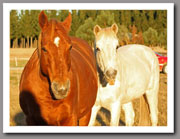
DISCLAIMER
*The information and material on the Calm Healthy Horses website is of a general educational nature only.
It is not intended to be used as a substitute for professional advice as it is not necessarily complete, up to date or applicable to you personally.
Jenny Paterson, B.Sc Calm Healthy Horses Ltd, Vicky Hansen Calm Healthy Horses Australia and Sue Dawson Calm Healthy Horses UK do not accept liability for any injury, loss, damage or expenses incurred by use of any of the CalmHealthyHorses Product range or from reliance on any information either given verbally or derived from this website.
Calm Healthy Horses Ltd is 100% NZ Owned.
 Calm Healthy Horses
Calm Healthy Horses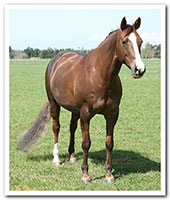 Affected' horse is the equivalent of
getting into a vehicle that is being driven by someone on 'P''
Affected' horse is the equivalent of
getting into a vehicle that is being driven by someone on 'P''